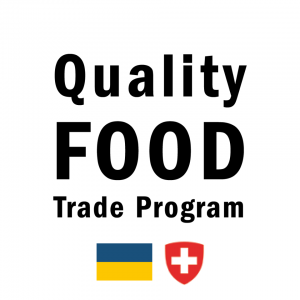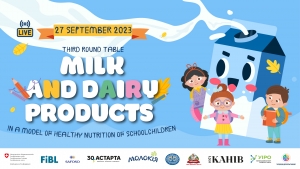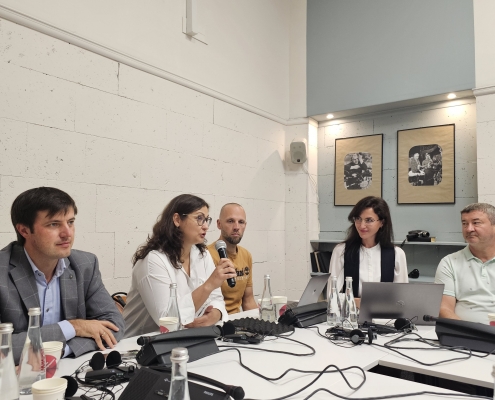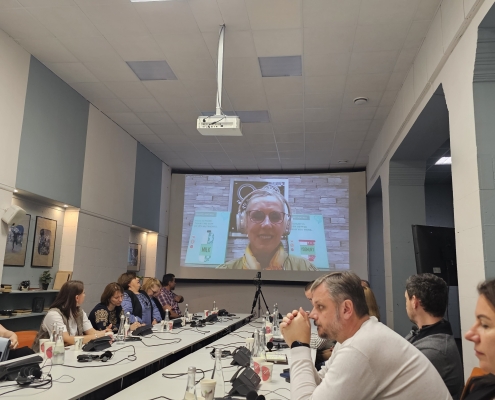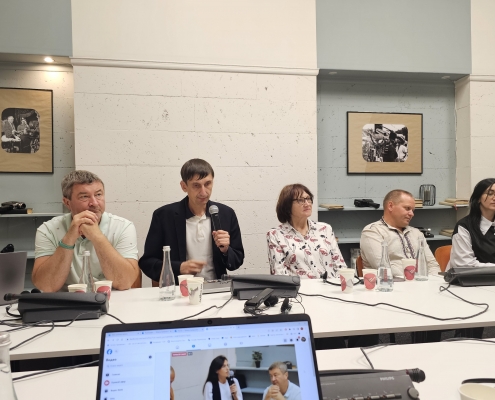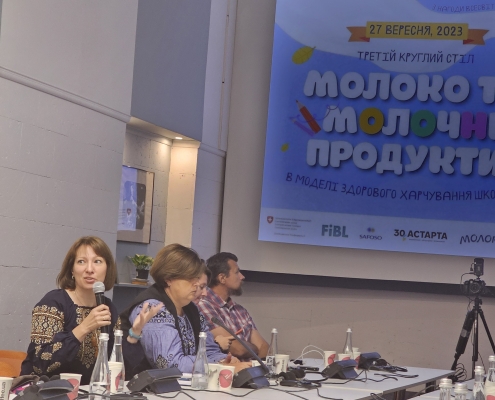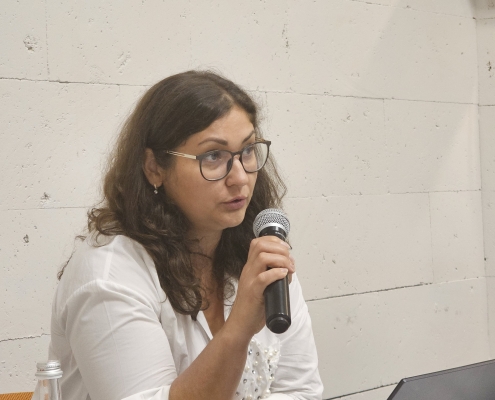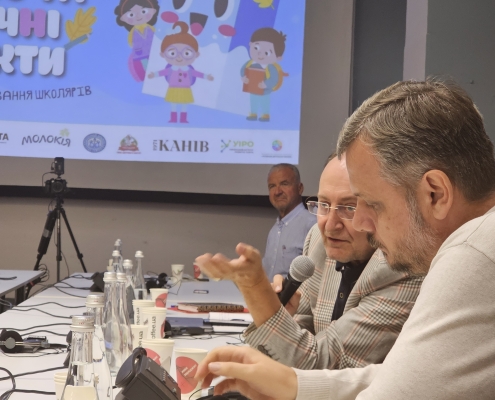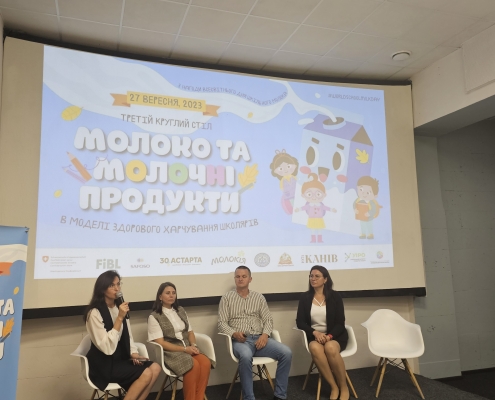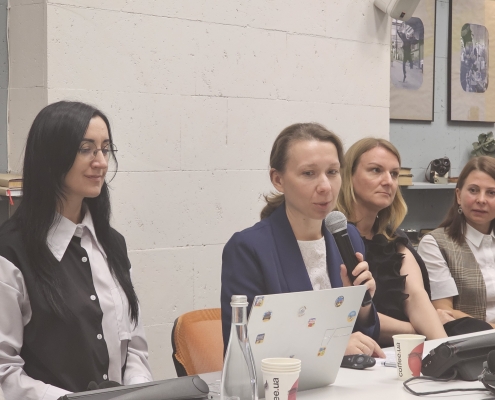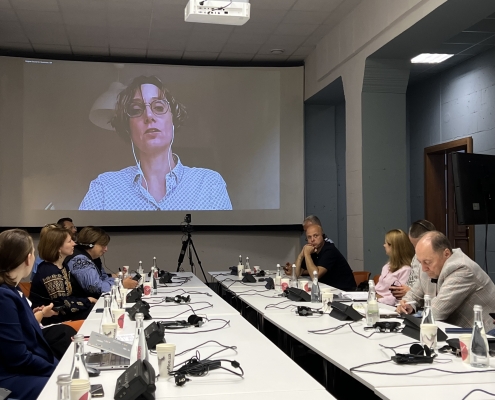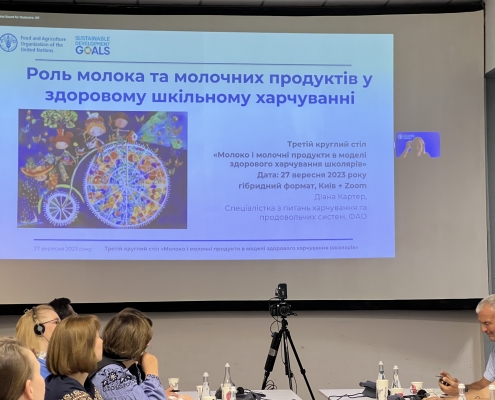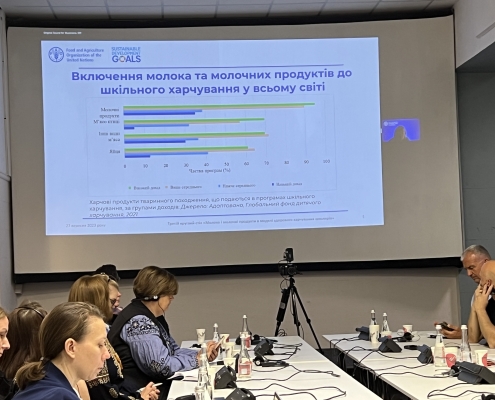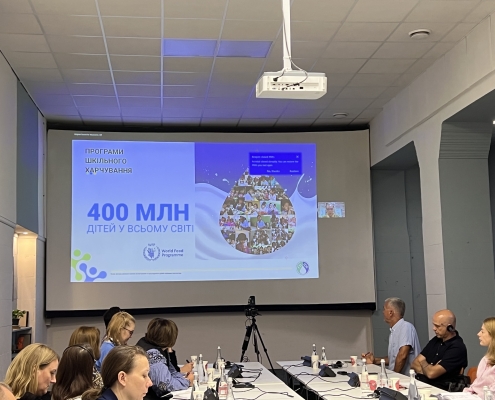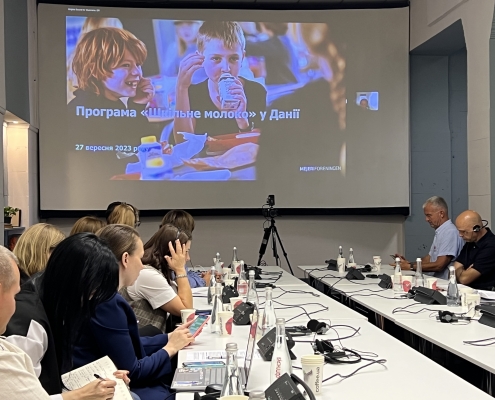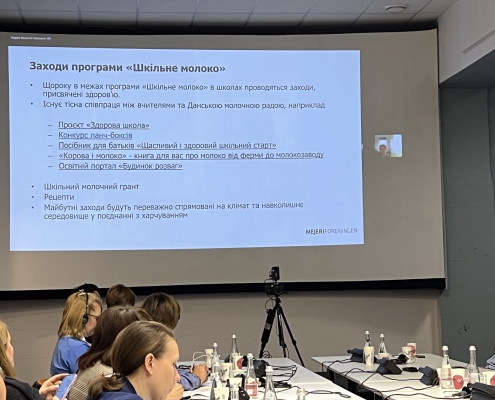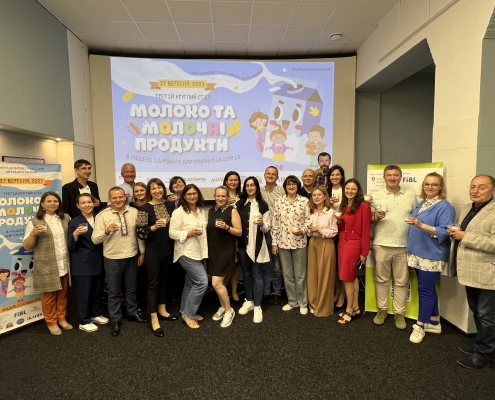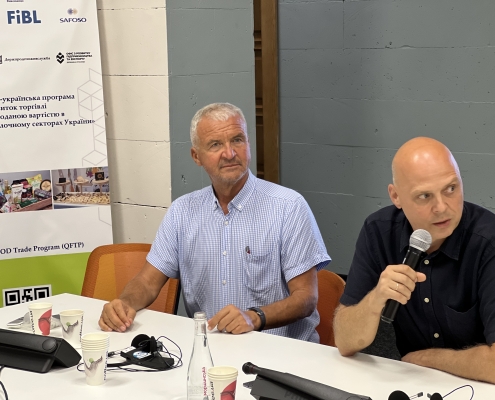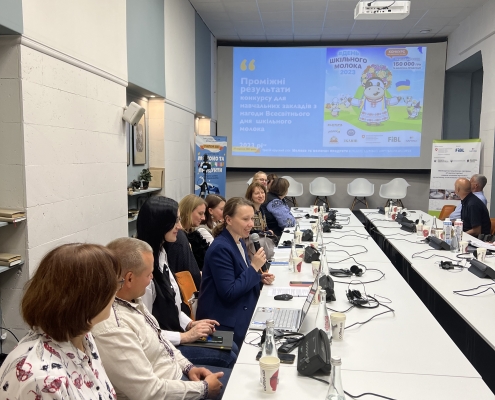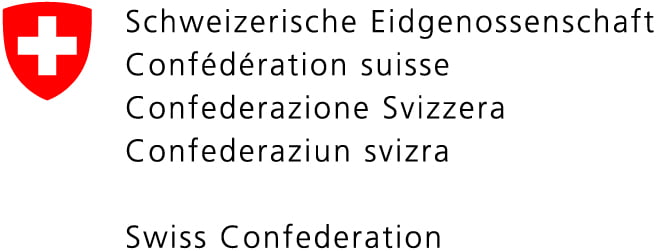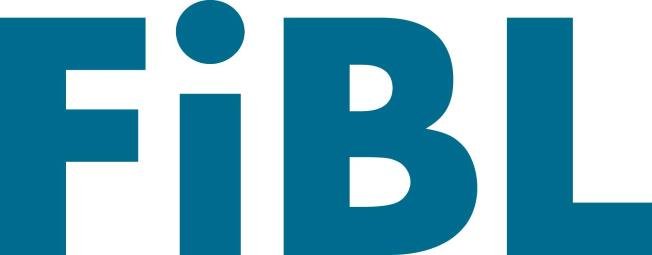On the occasion of World School Milk Day, which was celebrated on 27 September this year, the 3rd round table “Milk and Dairy Products in the Model of Healthy Nutrition of Schoolchildren” was held.
The event brought together public and private sector representatives, international and Ukrainian experts to update on the issue of healthy nutrition with a focus on milk and dairy products.
During the round table the role of milk and dairy products in the healthy nutrition of children of different age groups, availability of dairy products for daily consumption by schoolchildren in Ukraine, and experience of implementing school milk programmes in different countries were analysed.
The representatives of the Ministry of Health, Ministry of Agrarian Policy and Food, as well as Ukrainian Institute for Education Development, Association of Dietitians of Ukraine, and business associations of milk producers and processors took part in the round table.
“Ukraine has made a decision and has a clear goal to become a member of the European Union and we must adopt the best EU practices, including the implementation of school milk programmes, to ensure availability for daily consumption. Good and healthy nutrition of children is crucial for a healthy nation. Milk and dairy products play an important role in this. That’s why it is important that milk for children is affordable, safe and of high quality. We hope that in the future Ukraine will introduce a national school milk programme,” said Taras Vysotskyi, First Deputy Minister of Agrarian Policy and Food of Ukraine.
According to him, the Ministry of Agrarian Policy adopted a relevant order defining all quality and safety parameters for milk as a food product before joining the EU.
Tetyana Skapa, Head of the Division for Prevention of Non-Communicable Diseases and Circulation of Drugs of the Public Health Department of the Ministry of Health, stressed the need to strengthen the information activities to explain the nutritional value of milk and dairy products to teachers, parents, and children.
In her opinion, provision of milk to schoolchildren free of charge is of great importance, as milk is crucial for the development of the child’s body. The milk consumption standards have been approved by the government, however, not all children in Ukraine are entitled to free milk.
Orest Stepaniak, Head of the School Nutrition Reform Project Office, noted that, in spite of the war, Ukraine continues to work on transforming nutrition of children in educational institutions.
“It is important for us to ensure healthy nutrition for children who are also under constant stress. We are currently finalising the work on the School Nutrition Reform Strategy until 2027. Ukraine is also considering joining the UN Global School Meals Coalition. We welcome the initiative to provide children with school milk and are ready to help and support this area as much as possible,” he added.
In their speeches the international experts focused on the need to include milk and dairy products in school nutrition programmes, its value in children’s diets, and analysed the international experience in promoting milk consumption in educational institutions.
Diana Carter, Nutrition and Food Systems Officer at the FAO’s Food and Nutrition Division, believes that school nutrition programmes are crucial for children’s health and education. She emphasised that dairy products contain high quality proteins, calcium, vitamin D, and other important nutrients which are necessary for the growth and cognitive development of children and adolescents.
According to the World Food Programme, school nutrition programmes reach 400 million children. During the round table Maretha Vermaak, Action Team Leader on School Milk Programmes at the International Dairy Federation, presented the data of evaluation of school milk programmes in 82 countries.
“About 160 million children across 55 countries benefit from school milk programmes. These programmes are set up to nourish our children not to feed them. Milk is a convenient, versatile and tasty product that provides children with energy every day”, said the expert.
Pia Damgaard Beck, Team Leader in School Milk Scheme, Danish Dairy Board, spoke about the EU school fruit, vegetables and milk schemes, as well as experience in their implementation in Denmark.
The School Milk Scheme under the Danish Dairy Board in Denmark delivers milk to around 65,000 children every school day. About 66% of all schools in Denmark participate in the scheme. Every year the School Milk Scheme hosts activities focusing on health and dairy consumption in schools.
During the round table Yaroslav Malyarenko, Methodologist of the Distance Education Department, Ukrainian Institute of Education Development, presented the video “The Way of Milk”, from which children and parents can learn about quality and safety control of milk and dairy products and what laboratory tests and inspections milk undergoes to get to the store shelves in Ukraine. The video can be viewed at ZNAIMO platform.
In addition, the interim results of competitions for children on the occasion of World School Milk Day initiated by milk producers and processors were announced.
Manon Schuppers, Director of SAFOSO AG, noted that formation of healthy eating habits and principles of sustainable and healthy nutrition requires hard work not only by state authorities, but also the private sector and civil society.
“The efforts of the students, teachers and parents who joined the competition, promoting a healthy diet diversified with dairy products, organising visits to farms and dairy processing plants, school competitions, and debates on dispelling myths in the dairy sector, make me admire all the participants of the initiative,” said Manon Schuppers, Director of SAFOSO AG.
According to her, the Swiss-Ukrainian program will also contribute to awarding the winners of the competition to fund their needs for equipment.
The full video recording of the event is available In Ukrainian on the link .
The events are held by Lustdorf, Milk Alliance, Cheese Club, Molokia and Astarta Kyiv in cooperation with the Ukrainian Institute of Education Development, Association of Dietitians of Ukraine with support of Switzerland within the framework of the Swiss-Ukrainian Program “Higher Value Added Trade from the Organic and Dairy Sector in Ukraine” implemented by the Research Institute of Organic Agriculture (FiBL, Switzerland) in partnership with SAFOSO AG (Switzerland).
